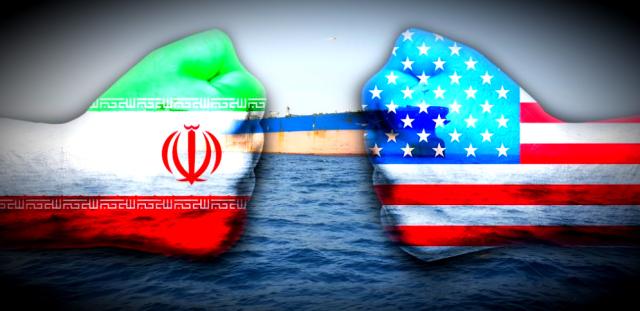
The U.S. has sought to force Iranian oil exports to zero as part of its “maximum pressure” campaign following its withdrawal from the Obama-era nuclear deal last year. (Source: Shutterstock.com)
The U.S. has issued sanctions against one of China’s largest state-backed oil companies for transporting Iranian crude oil, targeting one of Tehran’s key customers as Washington ratchets up pressure on the Islamic republic.
The Chinese company Zhuhai Zhenrong and its CEO, Youmin Li, will be barred from engaging in foreign exchange, banking or property transactions under U.S. jurisdiction.
The Chinese government condemned the move on July 23, saying it was firmly opposed to U.S. “bullying.”
The U.S. has sought to force Iranian oil exports to zero as part of its “maximum pressure” campaign to inflict economic pain on Tehran following America’s withdrawal from the Obama-era nuclear deal last year.
Zhuhai Zhenrong has strong links to Iran, having been established 25 years ago as the then-sole importer of Iranian crude into China.
A spokeswoman for China’s ministry of foreign affairs said: “We oppose the bullying and sanctions by the U.S. of China’s enterprises and individuals based on the U.S.’s domestic laws. We strongly condemn and firmly oppose sanctions on related Chinese companies by the U.S.”
She said Beijing would take steps to “safeguard the legitimate rights and interests of domestic enterprises and individuals.”
In May, the Trump administration said it would not renew the waivers issued to several countries, including China, that allowed them to circumvent U.S. sanctions and continue importing Iranian oil.
China, whose oil companies are among Iran’s biggest customers, quickly emerged as the chief opponent to this move—although it initially reduced its purchases of crude following Washington’s waiver withdrawals.
But it has quietly continued importing Iranian oil. Last month, China received its first delivery of an Iranian oil cargo since the Trump administration scrapped exemptions.
Unlike other Chinese state-backed oil dealers, Zhuhai Zhenrong has little overseas exposure, likely insulating it from the most damaging effect of U.S. sanctions. The company was already slapped with U.S. sanctions for supplying gasoline to Iran in 2012.
It has been unclear how willing the U.S. would be to punish Chinese companies over breaches of Iranian oil sanctions, especially as Washington and Beijing remain locked in talks over a trade deal.
Brian Hook, the U.S.’s Iran envoy, told reporters in April that the U.S. would “sanction any sanctionable behavior”. But when asked if that included Chinese companies, he responded: “I didn’t say that.”
Tensions between Tehran and Washington have escalated in recent weeks. Last week U.S. President Donald Trump said America had shot down an Iranian drone in the Strait of Hormuz after it threatened a U.S. warship. Iranian officials said that no drone had been lost.
Almost 24 hours later, Iran’s Revolutionary Guards seized a U.K.-linked tanker in the Strait, while temporarily stopping and boarding another.
Tensions with Iran have supported oil prices in recent months, with prices jumping 1.4% on July 22 to $63.31 a barrel following the seizure of a U.K.-flagged tanker. But the overall oil market remains relatively well-supplied, to the extent some traders believe that prices could fall sharply if China steps up purchases of Iranian crude.
__________________________________________________________________________________________________
RELATED:
What’s Affecting Oil Prices This Week (July 22, 2019)?
Perry: Iran’s Ability To Influence Oil Market Is Limited
__________________________________________________________________________________________________
Recommended Reading
Scout Signs Agreement with AdventHealth for Texas Wind Farm
2024-02-01 - Scout Clean Energy will supply a portion of its Heart of Texas wind farm to support 40% of AdventHealth’s electricity needs.
RIC Energy Sells 20 MW of Solar Plants to Luminace
2024-03-04 - RIC Energy says the facilities are expected to provide 100% clean energy to more than 5,000 homes participating in the utilities’ community solar programs.
CERAWeek: NextEra CEO: Growing Power Demand Opportunity for Renewables
2024-03-19 - Natural gas still has a role to play, according to NextEra Energy CEO John Ketchum.
Energy Transition in Motion (Week of Feb. 2, 2024)
2024-02-02 - Here is a look at some of this week’s renewable energy news, including a utility’s plans to add 3.6 gigawatts of new solar and wind facilities by 2030.
Energy Transition in Motion (Week of Feb. 16, 2024)
2024-02-16 - Here is a look at some of this week’s renewable energy news, including the outlook for solar and battery storage in the U.S.





